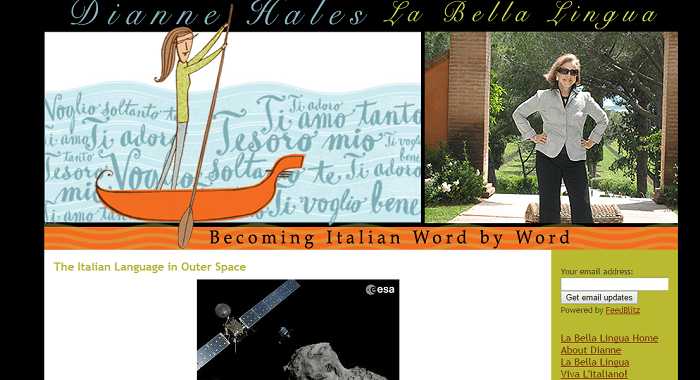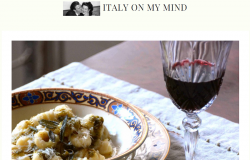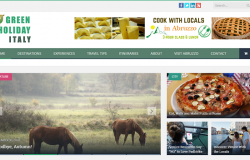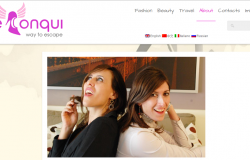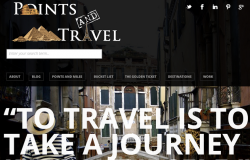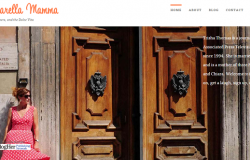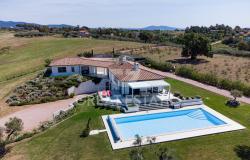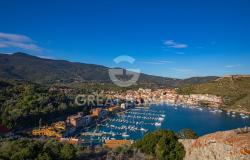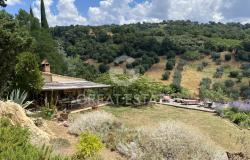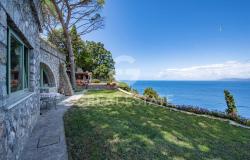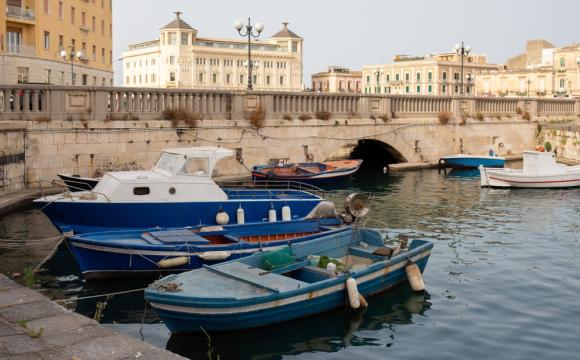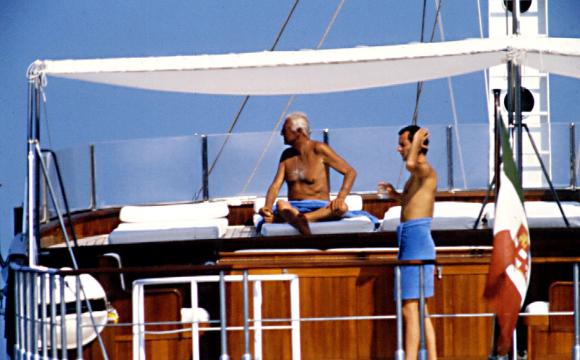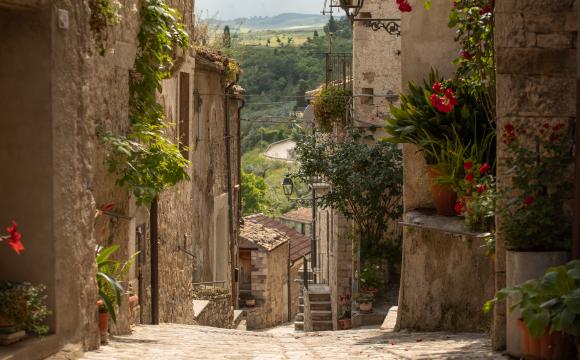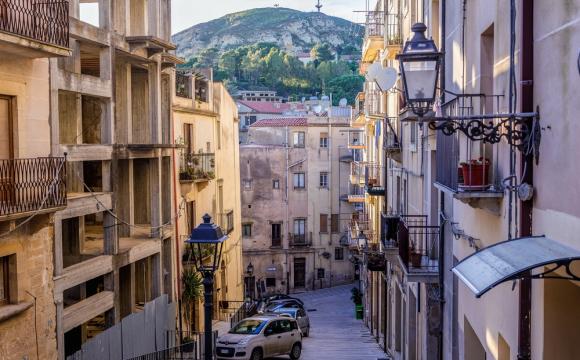Our blogger of the week is the charming Dianne Hales, who has written thousands of articles and penned a number of books, most importantly on learning the Italian language. She is the author of the best-seller La Bella Lingua, an invaluable tool for promoting the Italian language, which, in her words, was "a true labor of love that opened up a world of new experiences and new friends. Of its many delightful consequences, the most unexpected was an Italian knighthood." Dianne also won “Best Art & Culture Blog” in our 2013 Blogger Awards for her blog “Becoming Italian Word by Word”.
Dianne, where are you from originally?
I was born in Scranton, Pennsylvania, and I’m 100% Polish - although Italians assure me that I have an Italian soul.
What made you fall in love with Italy?
Years ago, I was invited to give a talk on sleep (I’d written my first book on the subject) in Gstaad. Switzerland was cold and bleak, and I decided to take a train south to Italy. I arrived knowing only one Italian phrase: “Mi dispiace, ma non parlo l’italiano” (I’m sorry but I don’t speak Italian).
Despite the language barrier, I was enchanted by Italy’s beauty and history and even more so by its people. I so craved conversation with them that I vowed to study the language. It took many, many years, and along the way I became so intrigued by the history of the language that I decided to write a book about it. That’s how La Bella Lingua was born.
Have you ever lived in or thought about living in Italy? If so, tell us about it!
My husband Bob and I have spent a month or so in Italy every year for the last 25 years. Although we’ve explored different regions, we’ve mainly stayed in the Maremma, along the western coast of Tuscany. We rented the same house for many years, so it felt like our Italian home. I loved playing “castellana” (the lady of the villa) and doing ordinary things like hanging out laundry or picking flowers for the table.
I’ve also spent extended periods on my own in Rome and Florence while researching my books. I rented apartments in the centro so I could walk everywhere and immerse myself in local life. Since I was “on assignment,” I pushed myself to do things that I might not as a tourist, such as going to a recital of Dante’s Inferno in a Florence neighborhood club and to one of Roberto Benigni’s Dante readings in Rome. Much of the Italian whisked by me, but I understood enough to be tremendously moved by the power of the words and by the experience of hearing them among Italians (many of whom wept).
When I was doing research on the life of the real Mona (Madame) Lisa for my most recent book MONA LISA: A Life Discovered, I stayed in apartments near where she had lived. I went to the churches where she worshipped and even knelt in the confessional in her family’s chapel. I walked the streets - far off the beaten tourist path - that she walked. I ventured into the building where she lived with her husband and children. Most movingly, I spent several evenings in the ruined convent of Sant’Orsola where Lisa lived the last years of her life, died and was buried. The building, both horrible and magnificent, held me. I wanted to linger because I felt such a connection to this Renaissance woman and her city.
In your blog you talk about the beauty of learning Italian. Why do you see it as such an important language to learn?
When I began to study Italian, a casual acquaintance asked if I could have chosen a less relevant language. I should have said Urdu, Pakistan’s native language, which ranks just after Italian (#19) in terms of the world’s most spoken languages. But he was wrong. Italian opens the door to everything: when you study la bella lingua, you also learn about history, art, music, religion, food, fashion, cinema, science - everything Western civilization has created. And if you were not born Italian, the language can be a passport into the Italian soul.
Your book LA BELLA LINGUA is a best-seller for those looking to learn Italian, and you even attained knighthood. Can you tell us more about that?
The subtitle of LA BELLA LINGUA is “My Love Affair with Italian, the World’s Most Enchanting Language,” and it truly was a labor of love. As one reader put it, it’s not about how to learn Italian, but why. Much to my surprise and delight, it touched the hearts of people who have a passion for Italy, its culture, its people and its language. People from around the world tell me that my little book has inspired them to study the language, research their family history, travel to Italy or try Italian recipes. What a kick!
When LA BELLA LINGUA was first published, I worried most about how Italians would react. It did seem, as an Italian friend put it, “un po’ audace” (a bit bold) for a foreigner to tell the story of another country’s language. Instead, they embraced it and invited me to speak at Italian Cultural Institutes around the country. Several years ago, I met Italy’s Ambassador to the U.S., and he commented that my book may have had a greater impact simply because I am not Italian. I don’t sound like a proud cheerleader promoting my country, but like someone who genuinely admires what may be Italy’s least celebrated achievement: its luscious language.
 I was stunned when I was notified that the President of Italy had conferred upon me the highest honor that could be given to a non-Italian: a knighthood. In the Italian Consulate in San Francisco in 2011, I became a Cavaliere dell'Ordine della Stella della Solidarietà Italiana - a Knight of the Order of the Star of Italian Solidarity, an award given to foreigners who have contributed to Italy’s culture. Mine was specifically for LA BELLA LINGUA’s contribution in promoting the Italian language.
I was stunned when I was notified that the President of Italy had conferred upon me the highest honor that could be given to a non-Italian: a knighthood. In the Italian Consulate in San Francisco in 2011, I became a Cavaliere dell'Ordine della Stella della Solidarietà Italiana - a Knight of the Order of the Star of Italian Solidarity, an award given to foreigners who have contributed to Italy’s culture. Mine was specifically for LA BELLA LINGUA’s contribution in promoting the Italian language.
In addition to an elegant certificate, the award comes with very impressive bling. I received three medals: one with a large bow for formal occasions; another with a smaller bow for less formal events, and a stick-pin to wear with business attire. Whenever I have the opportunity to wear one, I do so with great pride.
When and why did you start your blog?
I started blogging early in 2009 to reach out to Italian students and teachers and promote LA BELLA LINGUA, which came out that May. I wanted to create an online global community of Italian lovers - and I have! My blog and website have attracted more than 1,000,000 visitors.
That's impressive! Who follows your blog? Tell us about your readers.
My readers come from just about every country in the world - Italy, England, Ireland, Poland, China, India, Japan, Australia, Samoa, Russia, Morocco, Germany, Brazil, Chile. A woman on a ranch in South Africa wrote to say my blog inspired her to do a series of paintings of Italian gardens. A group of nuns doing missionary work follow it regularly. Many teachers use the blog to spark conversation in class. One woman reads each post to her blind elderly brother, who was born in Naples. Lately, as I’ve been traveling for presentations of MONA LISA, I invariably meet people who have been following my blog for years. A few actually print out the posts and keep them in binders (which is something I should do myself).
What do you blog about?
I blog about Italy and every aspect of its culture, almost always with some tie to the language. If I’m writing about Natale for example, I’ll include words for Christmas songs, traditions, foods and celebrations. I’ve featured romantic sayings for Valentine’s Day, colorful idioms and their history, and Italian words you won’t learn in class. I’ll also take on topics in the news - again with a language spin. For instance, when the Costa Concordia cruise ship went aground off the Italian coast (in a tiny town I know well), I wrote about what the coast guard said to the captain who had abandoned ship - an obscenity that was heard around the world. This week I wrote about the story of St. Martin’s summer, early Italian words in Rome’s catacombs and crypts and a new Italian word, accometato, invented when a European team that included many Italians successfully landed a satellite on a comet.
What would you advise people to do if they were looking to learn Italian?
Try everything! Turn your car into a classroom with Italian-language CDs. Download podcasts to your iPod, MP3 player, or cell phone, and listen on planes, trains, buses, and places in between. Sample all the online options, such as Duolingo and News in Slow Italian.
Read Italian papers online. If you can find some, Italian action comics, with heroes such as Tex, a time-traveling cowboy, and Diabolik, “king of terror,” provide a fun way to improve your vocabulary and reading skills.
Watch classic movies such as Roma, città aperta or La dolce vita. Even if you can’t carry a tune, sing along with popular Italian songs on Youtube.
You can find Italian giochi di parole (word games), including cruciverba (crosswords) and anagrammi (anagrams) in inexpensive books or online. Play the Italian versions of popular board games, such as Monopoly and Scarabeo (Scrabble), with friends or fellow students. Or ask an Italian to teach you card games such as Scopa and Briscola. (Just don’t bet any money on them.)
Hang out with people who speak Italian. Join a bocce team or a Vespa club. Watch a soccer match in an Italian bar or restaurant. Take cooking classes taught by Italians. Go to Italian street festivals. For informal opportunities to speak Italian, look for a local conversation group. Enroll in a class at schools, community centers, Italian cultural organizations, or, best of all, in Italy.
Above all, have fun!
All your blog posts are interesting but can you recommend one or two especially for ITALY Magazine readers?
Well, most Italophiles have a romantic streak, so they might enjoy “The Ten Most Romantic Phrases in the Italian Language”, one of my most popular posts.
I'd also like to invite your readers to come visit my new blog, Mona Lisa’s Florence, which I created for my new book. By the way, MONA LISA: A Life Discovered was just selected as one of Amazon’s Best Books of 2014 (Arts and Photography).
Many of the posts have been about the book’s publication and my international book tour, but I will be focusing more on Florence, as it was in Mona Lisa’s day and as it is today. Of course, the city has a special place in my heart since it is the cradle of the Italian language and the place where I first heard and spoke la bella lingua.
Thank you for talking to ITALY Magazine, Dianne! Happy blogging.
It’s been my pleasure! My thanks to your readers for their support! Please stay in touch!
Keep in touch with Dianne via her websites www.diannehales.com or www.labellalingua.org and her newest one, www.monalisabook.com.
